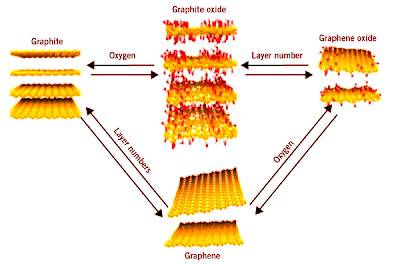Jodi Arias Trial Update: Transcripts Show the Attorneys Were At Each
Other’s Throats; Penalty Retrial May Not Move on As Scheduled
July 14, 2013: Jodi Arias trial update. Jodi Arias court transcripts show that there was plenty of tension between the prosecution and defense lawyers in the five months of the courtroom drama. The Jodi Arias trial mesmerized America as graphic descriptions came out daily when the trial was televised in its entirety. But the truly gripping details of the Jodi Arias court case are only now coming to light as details are being released via the transcripts of sidebars.
Jodi Arias' defense attorney Jennifer Wilmott played a large part in the transcripts. Sidebars in the Jodi Arias case between the lawyers and Judge Sherry Stephens that were previously sealed are now showing that the the extent that the Jodi Arias trial was contentious.
The Jodi Arias murder trial appears to have been shown fully as every hour of the extremely long trial was broadcast and some of the details about the night that Arias stabbed and shot her former lover Travis Alexander were highlighted on news programming with graphic detail. Especially the more salacious aspects of the case like the phone sex conversation between Arias and Alexander, which was shown repeatedly on cable news shows countless, but the Arizona Republic is still publishing some of the more dramatic moments that had not been made public.
Jodi Arias trial Judge Sherry Stephens sealed all sidebars from public record and used a white noise machine to block what was being said by the lawyers from the video feed. Transcripts that are now coming to light reveal the depths of the acrimony between the defense and prosecution. State prosecutor Juan Martinez tried to throw as much as possible on the waitress and budding photographer while defense attorney Jennifer Wilmott tried to block as much as she could.
At the time of the trial there were media reports that one of the defense witnesses refused to testify because she was getting death threats. The sidebar transcripts show that it wasn’t just the death threats that kept her from the stand. The woman was afraid that the prosecution would make her drug use public and she would lose her welfare benefits.
The Arizona Republic reported, "Martinez could be heard in a sidebar as he detailed the cards he was going to play against her had she taken the stand. She had a drug problem, he said, she seemed high during an interview, she might not have the claimed income from photographs she sold to a television and could be in violation of welfare regulations."
Martinez tried to introduce issues showing bizarre behavior from Arias before the crime. The prosection wanted to include details like Arias slashing Travis Alexander’s tires and sleeping under his Christmas tree.
Jodi Arias was convicted of premeditated murder, but has not yet been sentenced. Once the jury found that the death penalty was on the table, they could not decide on a sentence. The penalty phase of the trial is set to begin on July 18 but may be delayed because the defense says they have scheduling conflicts and are not ready to begin the retrial.
Jodi Arias' defense attorney Jennifer Wilmott played a large part in the transcripts. Sidebars in the Jodi Arias case between the lawyers and Judge Sherry Stephens that were previously sealed are now showing that the the extent that the Jodi Arias trial was contentious.
The Jodi Arias murder trial appears to have been shown fully as every hour of the extremely long trial was broadcast and some of the details about the night that Arias stabbed and shot her former lover Travis Alexander were highlighted on news programming with graphic detail. Especially the more salacious aspects of the case like the phone sex conversation between Arias and Alexander, which was shown repeatedly on cable news shows countless, but the Arizona Republic is still publishing some of the more dramatic moments that had not been made public.
Jodi Arias trial Judge Sherry Stephens sealed all sidebars from public record and used a white noise machine to block what was being said by the lawyers from the video feed. Transcripts that are now coming to light reveal the depths of the acrimony between the defense and prosecution. State prosecutor Juan Martinez tried to throw as much as possible on the waitress and budding photographer while defense attorney Jennifer Wilmott tried to block as much as she could.
At the time of the trial there were media reports that one of the defense witnesses refused to testify because she was getting death threats. The sidebar transcripts show that it wasn’t just the death threats that kept her from the stand. The woman was afraid that the prosecution would make her drug use public and she would lose her welfare benefits.
The Arizona Republic reported, "Martinez could be heard in a sidebar as he detailed the cards he was going to play against her had she taken the stand. She had a drug problem, he said, she seemed high during an interview, she might not have the claimed income from photographs she sold to a television and could be in violation of welfare regulations."
Martinez tried to introduce issues showing bizarre behavior from Arias before the crime. The prosection wanted to include details like Arias slashing Travis Alexander’s tires and sleeping under his Christmas tree.
Jodi Arias was convicted of premeditated murder, but has not yet been sentenced. Once the jury found that the death penalty was on the table, they could not decide on a sentence. The penalty phase of the trial is set to begin on July 18 but may be delayed because the defense says they have scheduling conflicts and are not ready to begin the retrial.
Courtesy: http://www.kpopstarz.com
















